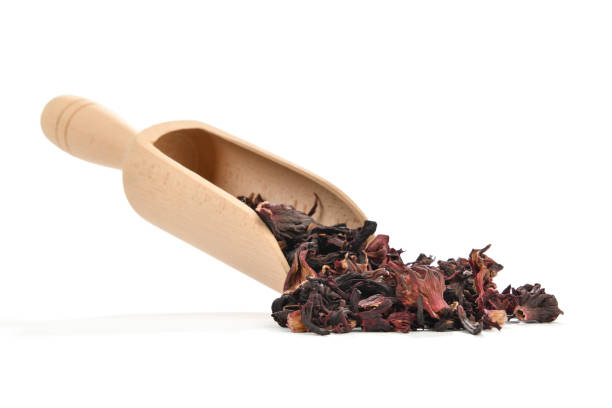
Hibiscus (Hibiscus Plant Or Roselle) is an herbal plant that spreads in tropical and semi-tropical regions, and has been used since ancient times as one of the most important medicinal plants because of its multiple healing properties.
The benefits of hibiscus can be obtained by using various parts of the plant, such as leaves, flowers, and liquid extracts that are extracted from it, and its use in medical aspects is important, especially in cases of bacterial infections, or high blood pressure, etc. Many nutritional supplements.
The nutritional value of hibiscus
Each part of the hibiscus plant contains a different amount of minerals and elements necessary for the health and safety of the body. 100 grams of the hibiscus herb contains the following nutrients and components:
- Protein, ranging from 2 grams in flowers to 28 grams in seeds.
- Carbohydrates, ranging from 8 grams in the leaves to 25 grams in the seeds.
- Fat, and its high percentage in the seeds compared to the leaves and flowers, which are almost non-existent.
- Vitamin A, found exclusively in the leaves, is 1,000 milligrams.
- Vitamin B1, or thiamine, is found in an amount of 0.2 milligrams in the leaves, 0.1 milligrams in the seeds, and 0.05 milligrams in the flowers.
- Vitamin B2, found in the amount of 0.15 mg in the seeds.
- Vitamin C, and its ratio ranges from 2 milligrams in the leaves to 17 milligrams in the flowers.
- Calcium, its ratio ranges from 150 mg in flowers to 350 mg in seeds.
- Iron, its ratio ranges from 3 milligrams in flowers to 9 milligrams in seeds.
The benefits of hibiscus for the health of the body are numerous, and the following are the most important of these benefits:
1. Reduce the risk of cardiovascular disease
Drinking hibiscus helps reduce the risk of cardiovascular disease, due to its following properties and benefits:
- reduce inflammation in the body; Hibiscus has anti-inflammatory properties.
- Protection from heart disease caused by high blood pressure. A report issued by the American Heart Association indicates that drinking hibiscus helps reduce blood pressure in adults with high blood pressure; Due to its diuretic properties.
- maintaining a healthy heart; This is because hibiscus contains anthocyanin compounds, which protect against many heart diseases.
- Reducing the risk of diseases caused by high fats, as hibiscus reduces harmful cholesterol and fat in the body.
2. Reducing blood sugar
Eating hibiscus is beneficial for people with type 2 diabetes, because of its role in reducing the level of sugar in the blood, by inhibiting the activity of alpha-amylase and intestinal alpha-glucosidase. Glucosidase, which digest complex carbohydrates in food and convert them into monosaccharides.
3. Influenza prevention
Hibiscus helps prevent influenza infection; This is because it has anti-inflammatory and antiviral properties, and it has the ability to reduce body temperature, and therefore it is useful for treating fever.
Hibiscus contains vitamin C, which also helps to strengthen the immune system in the body, which reduces the chance of catching colds and coughs.
4. Help in losing excess weight
Hibiscus drink is one of the most effective weight loss drinks. There are no calories in hibiscus, and the ethanolic extract from hibiscus leaves helps reduce blood fats.
It is worth noting that it is recommended to continue to drink hibiscus, taking care to exercise, and follow a healthy diet.
5. Maintain a healthy liver
Drinking hibiscus helps reduce the accumulation of fat and fatty degeneration in the liver (Liver Steatosis), which reduces the risk of liver failure, according to what was published in the Food & Function Journal.

Disadvantages of eating hibiscus!!
Despite the many benefits of hibiscus, there are some caveats that are recommended to be taken into account when eating it, and we mention among those caveats the following:
- Pregnancy: It is potentially unsafe to take hibiscus in the first trimester of pregnancy, as it may stimulate menstruation or have pregnancy termination effects.
- Lactation: It is potentially unsafe to eat hibiscus during breastfeeding, because of its potential negative impact on the health of the infant.
- Low blood pressure: Eating hibiscus might cause blood pressure to drop sharply in people with low blood pressure.
- Surgical operations: Eating hibiscus may affect blood sugar levels, which makes it difficult to control blood sugar during and after surgery, so it is advised to stop eating hibiscus at least two weeks before the surgery.

1 Comment
Thank you